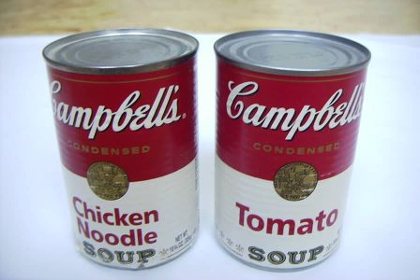
No Amount of ‘Free From’ Labeling Will Make Processed Food Good for You
If a company wants customers to buy its products, it must make products customers want to buy.
Americans these days don’t want artificial and unsustainably produced ingredients in the food they buy and eat. For the makers of highly processed foods – ultraprocessed in today’s terminology – there isn’t a lot that they can do to make the products appear fresh and natural.
April 2, 2016 | Source: The Guardian | by Marion Nestle
If a company wants customers to buy its products, it must make products customers want to buy.
Americans these days don’t want artificial and unsustainably produced ingredients in the food they buy and eat. For the makers of highly processed foods – ultraprocessed in today’s terminology – there isn’t a lot that they can do to make the products appear fresh and natural.
But Campbell’s is certainly trying. A few months after announcing that it will phase out genetically modified organisms (GMOs), the iconic soup company said on Friday that it will remove Bisphenol-A (BPA) from its cans by next year.
BPA, you will recall, is a chemical typically used in polycarbonate plastic containers and in the epoxy linings of food cans. It’s also an endocrine disrupter, which means it can interfere with the work our hormones are doing. Some research finds BPA to have effects on childhood development and reproduction.
Although the FDA doesn’t believe evidence of potential harm is sufficient to ban BPA from the food supply, the agency discourages use of BPA-polycarbonate or epoxy resins in baby bottles, sippy cups or packaging for infant formulas. For the past year or so, other retailers have been working hard to phase out BPA and to reassure customers that their cans and packages are safe.
All of these companies sell highly processed foods in an era when the public is demanding – and voting with their dollars – for fresh, natural, organic, locally grown and sustainably produced ingredients.
They can’t provide those things, but they can tout the bad, or unpopular, things that aren’t part of their product, the “no’s”: no unnatural additives, no artificial colors or flavors, no high fructose corn syrup, no trans fat, no gluten and, yes, no GMOs or BPA.
Let me add something about companies labeling their products GMO-free. In my view, the food biotechnology industry created this market – and greatly promoted the market for organics, which do not allow GMOs – by refusing to label which of its products contain GMOs and getting the FDA to go along with that decision. Whether or not GMOs are harmful, transparency in food marketing is hugely important to increasing segments of the public. People don’t trust the food industry to act in the public interest; transparency increases trust.
